
In late October 312 CE, the fate of the future of the Roman world was decided near the Pons Milvius, the Milvian Bridge (the modern-day Ponte Milvio, Italy), crossing the River Tiber some three miles (5km) north of Rome on the via Flaminia. The battle was the culmination of the war between rival Roman emperors, Maxentius and Constantine, to see who would dominate the western Roman Empire.
In 293 CE, Emperor Diocletian had introduced a system of two emperors (augusti; singular: augustus) and two junior-emperors (caesares; singular: caesar), to govern what had become an unstable system of one emperor ruling over the entire empire. The previous century had seen a great deal of instability and more than 50 emperors and usurpers. This new system was known as the Tetrarchy and saw the empire split between east and west. The west was governed from Mediolanum (modern-day Milan) and Augusta Treverorum (modern-day Trier, Germany); the east from Nicomedia (modern-day Izmit, Turkey) and Sirmium (modern-day Sremska Mitrovica, near Belgrade, Serbia). The system worked well until 305 CE when Diocletian and his co-emperor, Maximian, retired and the caesares, Galerius and Constantius, were raised to augusti and new caesares were appointed: Maximinus Daza to Galerius and Valerius Severus to Constantius.
Constantius died in York in July 306 CE, and his son, Flavius Valerius Constantius (known as Constantine), was acclaimed augustus by his father's army. Constantius' co-emperor Galerius promoted Severus to augustus as the system dictated. In October that year, the retired emperor Maximian's son, Marcus Aurelius Valerius Maxentius, declared himself augustus (in opposition to Severus). Rivalry and ambition were already putting the Tetrarchy system at risk.
This story is from the {{IssueName}} edition of {{MagazineName}}.
Start your 7-day Magzter GOLD free trial to access thousands of curated premium stories, and 9,000+ magazines and newspapers.
Already a subscriber ? Sign In
This story is from the {{IssueName}} edition of {{MagazineName}}.
Start your 7-day Magzter GOLD free trial to access thousands of curated premium stories, and 9,000+ magazines and newspapers.
Already a subscriber? Sign In
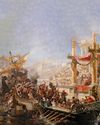
NAUMACHIA TRUTH BEHIND ROME'S GLADIATOR SEA BATTLES
In their quest for evermore novel and bloody entertainment, the Romans staged enormous naval fights on artificial lakes
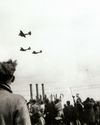
OPERATION MANNA
In late April 1945, millions of Dutch civilians were starving as Nazi retribution for the failed Operation Market Garden cut off supplies. eet as In response, Allied bombers launched a risky mission to air-drop food

GASSING HITLER
Just a month before the end of WWI, the future Fuhrer was blinded by a British shell and invalided away from the frontline. Over a century later, has the artillery brigade that launched the fateful attack finally been identified?
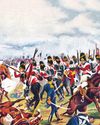
SALAMANCA
After years of largely defensive campaigning, Lieutenant General Arthur Wellesley went on the offensive against a French invasion of Andalusia

HUMBERT 'ROCKY'VERSACE
Early in the Vietnam War, a dedicated US Special Forces officer defied his merciless Viet Cong captors and inspired his fellow POWs to survive
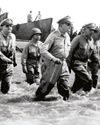
LEYTE 1944 SINKING THE RISING SUN
One of the more difficult island campaigns in WWII's Pacific Theatre saw a brutal months-long fight that exhausted Japan’s military strength

MAD DAWN
How technology transformed strategic thinking and military doctrine from the Cold War to the current day
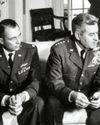
BRUSHES WITH ARMAGEDDON
Humanity came close to self-annihilation with the Cuban Missile Crisis, Broken Arrows’ and other nuclear near misses
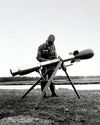
THE DEADLY RACE
How the road to peace led to an arms contest between the USA and USSR, with prototypes, proliferation and the world’s biggest bomb
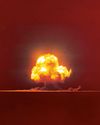
THE MANHATTAN PROJECT
Einstein, Oppenheimer and the race to beat Hitler to the bomb. How a science project in the desert helped win a war